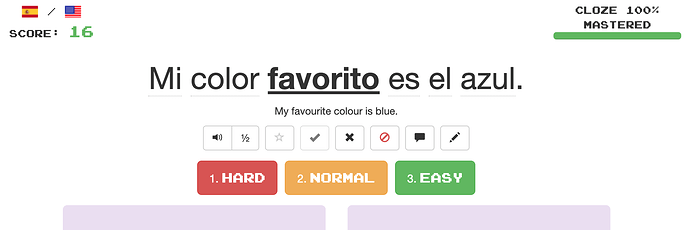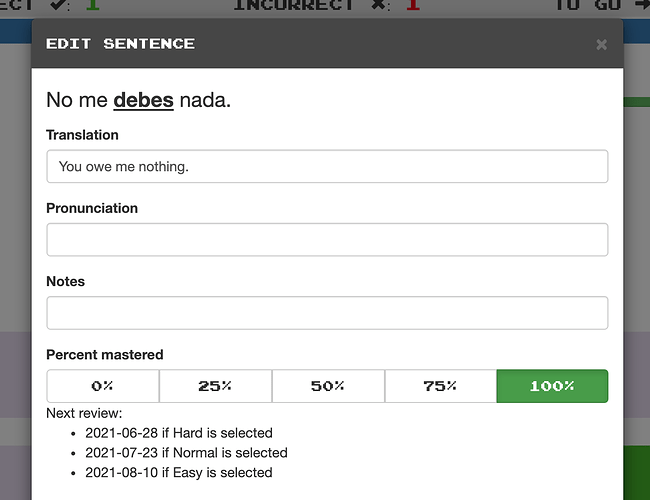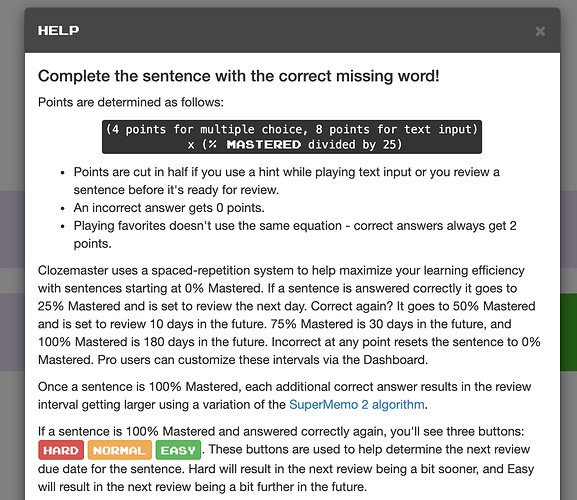First of all, Clozemaster is my favorite learning tool. With over a million points gathered I’ve spent a fair amount of time using Closemaster and learning it’s strengths and weaknesses.
This all has to do with limitations of the scheduling system. If you are using the site in multiple choice mode, this might not affect you as much, as the default levels (0/25/50/75/100%) with 0/1/10/30/180 are not bad for word recognition, and the 100% words only loop back twice a year.
However, for those of us who are using the type-your-answer mode and are focusing on word production rather than recognition, the intervals are far too widely spaced. I currently have mine at 1/2/8/20/60 days, with the 60 probably being a bit too long.
As a result “100% learned” words not only occur sooner, but they also repeat at a much higher rate. This is not too bad for words that are a still a bit foggy. However once words have hit 100% and are well known, they become a burden showing up every (for me) 60 days.
So yes, I can individually ignore them. However this is not only tedious, but not a good use of my study time. Also – when I ignore a word, it evaporates from my words learned, a metric that I enjoy for its motivation.
I can see multiple solutions to this issue. These are not only stand alone solutions, but are also mutually compatible (i.e. could be implemented in tandem.)
-
Add a “correct streak metric” and a “suspend 100% after correct answers” option. This would prevent it from re-scheduling, but not remove it from my words learned.
-
Add a user settable incremental percentage for 100% learned words. Say I set my increment to 50%. With my 60 day interval, the next time the word comes up it is 60+30=90 days. Then next time 90+45=135 days, etc.
-
Add more than the current number of levels. Rather than 0/25/50/75/100 make it 0/10/20/30/40…/100.
Lastly, of course a true SRS algorithm such as SM2 would be an incredibly elegant, and arguably the best solution. However that would likely require a major restructuring of the current codebase. The above 3 suggestions would likely be far easier to implement.
Since all of these issues probably only matter to the more active users, I can see them being limited to Pro, and also a good impetus to move to Pro.










